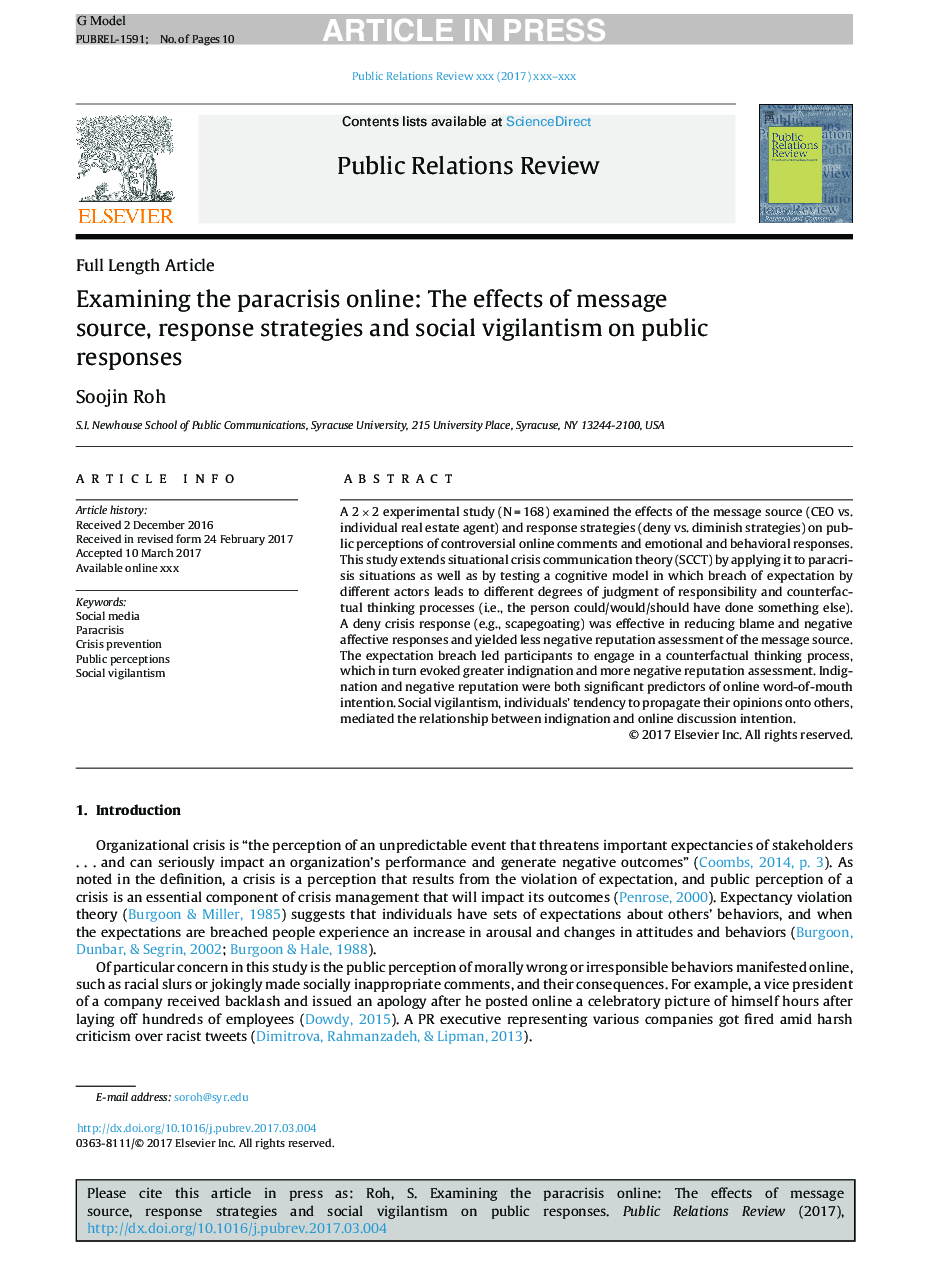| Article ID | Journal | Published Year | Pages | File Type |
|---|---|---|---|---|
| 4761765 | Public Relations Review | 2017 | 10 Pages |
Abstract
A 2Â ÃÂ 2 experimental study (NÂ =Â 168) examined the effects of the message source (CEO vs. individual real estate agent) and response strategies (deny vs. diminish strategies) on public perceptions of controversial online comments and emotional and behavioral responses. This study extends situational crisis communication theory (SCCT) by applying it to paracrisis situations as well as by testing a cognitive model in which breach of expectation by different actors leads to different degrees of judgment of responsibility and counterfactual thinking processes (i.e., the person could/would/should have done something else). A deny crisis response (e.g., scapegoating) was effective in reducing blame and negative affective responses and yielded less negative reputation assessment of the message source. The expectation breach led participants to engage in a counterfactual thinking process, which in turn evoked greater indignation and more negative reputation assessment. Indignation and negative reputation were both significant predictors of online word-of-mouth intention. Social vigilantism, individuals' tendency to propagate their opinions onto others, mediated the relationship between indignation and online discussion intention.
Keywords
Related Topics
Social Sciences and Humanities
Business, Management and Accounting
Marketing
Authors
Soojin Roh,
